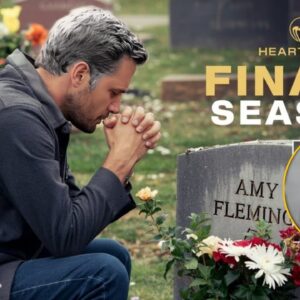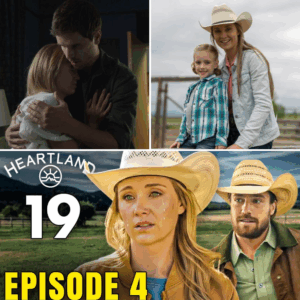In the flickering glow of Netflix’s ever-expanding library, where algorithms unearth forgotten gems like digital grave robbers, a 2021 powerhouse has clawed its way back to the forefront: The Mauritanian. This taut, unflinching political thriller, directed by Oscar-winner Kevin Macdonald (The Last King of Scotland), isn’t just resurfacing—it’s detonating anew, arming subscribers with a masterclass in suspense that feels ripped from tomorrow’s headlines. Starring Jodie Foster as a bulldog defense attorney and Benedict Cumberbatch as a conscience-torn prosecutor, the film thrusts viewers into the moral quagmire of America’s post-9/11 War on Terror. Based on the harrowing memoir Guantánamo Diary by Mohamedou Ould Slahi, it’s a story of one man’s 14-year odyssey through indefinite detention, where silence becomes a weapon, justice a casualty, and truth the ultimate casualty of power. As Netflix rolls it out globally in November 2025—coinciding with renewed global scrutiny over human rights abuses in conflict zones—the film’s relevance scorches like salt in an open wound. This isn’t the Jodie Foster of polite Oscar bait or the Cumberbatch of quippy Sherlock sleights; it’s them unleashed, raw and relentless, in a narrative that grips like a vice and lingers like regret. If you’ve been waiting for a thriller that punches through the noise of partisan echo chambers, your queue just got a seismic upgrade.
The spark for The Mauritanian ignites in the scorched sands of Mauritania, November 2001. Mohamedou Ould Slahi (Tahar Rahim, The Serpent), a 30-year-old engineer and former college student in Germany, is snatched in a midnight raid by local authorities at the behest of the CIA. No charges, no trial—just whispers of al-Qaeda ties, fueled by a tip from a family black sheep. Whisked to Jordan for brutal interrogations, then Amman black sites, he’s eventually funneled to Guantánamo Bay’s razor-wire maw in 2002: Prisoner 760, a number etched into his soul. For 14 years, Slahi endures the base’s infamous cocktail of isolation, sleep deprivation, and “enhanced” techniques—waterboarding sessions that blur into hallucinations, chains that chafe to bone, and a relentless psychological siege designed to extract confessions from thin air. Yet Slahi, with his quick wit and unyielding faith, pens a 466-page diary in secret, smuggled out via his lawyer in 2005 but redacted by the Pentagon until 2015. That manuscript, a raw chronicle of resilience amid atrocity, became a New York Times bestseller and the blueprint for Macdonald’s film—a bridge from page to screen that doesn’t just recount history but resurrects its ghosts.
Macdonald, whose documentaries like One Day in September (2000 Oscar winner) have long dissected terrorism’s tangled web, approached the adaptation with forensic precision. Co-writer Rory Haines (The Girl) and screenwriters M.B. Ebrahim (Spooks: The Greater Good) layered Slahi’s voiceover narration—delivered in Rahim’s haunting, accented timbre—over a triptych structure: defense, prosecution, and detainee perspectives interweaving like barbed wire. Filming kicked off in South Africa, standing in for Gitmo’s humid hell with disused naval bases transformed into mock cells, their corrugated metal echoing under fluorescent buzz. Budgeted at a lean $15 million, the production leaned on practical grit: real chains clinking in echoey chambers, rain-lashed exteriors mimicking Jordan’s downpours, and a score by Tom Rowsell (Public Service Broadcasting) that fuses minimalist drones with West African rhythms, underscoring Slahi’s Mauritanian roots. “We didn’t want spectacle,” Macdonald told The Guardian in 2021. “Gitmo’s horror is mundane—endless waiting, the drip of injustice. That’s the suspense: will truth outlast the tide?”
At the film’s throbbing core is Foster’s Nancy Hollander, a real-life Albuquerque civil rights attorney who takes Slahi’s case pro bono in 2005, eight years into his limbo. At 58 during filming, Foster—twice an Oscar winner for The Accused and The Silence of the Lambs—sheds her director’s poise (Money Monster, Nyad) for a portrayal that’s equal parts ferret and fury. Nancy storms into Gitmo hearings like a legal tornado, her frizzy hair and no-nonsense pantsuits a deliberate rebuke to courtroom glamour. She’s the underdog archetype Foster owns: a Jewish liberal iconoclast bucking the post-9/11 hysteria, poring over redacted files in fluorescent-lit offices, her voice cracking as she reads Slahi’s diary aloud—”They broke my body, but not my mind.” Yet Foster infuses vulnerability: Nancy’s own brushes with FBI surveillance in the ’70s haunt her, making her fight personal, a crusade against the machine that once eyed her as enemy. Her Golden Globe win for Best Supporting Actress (despite lead billing) was no fluke; it’s a performance of controlled chaos, peaking in a Pentagon showdown where she eviscerates a witness with archival footage, her eyes blazing like lit fuses. “Jodie’s Nancy isn’t heroic in the Hollywood sense,” Rahim reflected in a 2025 Netflix retrospective. “She’s exhausted, flawed—pushing because stopping means surrender.”
Opposing her—and adding the thriller’s electric friction—is Cumberbatch’s Lt. Col. Stuart Couch, a Marine JAG prosecutor assigned to nail Slahi as a 9/11 conspirator. Fresh from The Courier‘s Cold War stoicism, the 44-year-old Brit dives into Yankee heartland mode: a thick South Carolina drawl honed with dialect coaches, pressed uniforms starched to severity, and a Bible on his desk like a talisman. Couch’s arc is the film’s moral fulcrum—his zeal stems from intimate loss: a Naval Academy classmate vaporized in the Pentagon attack on September 11, 2001, a wound that festers into vengeful tunnel vision. As evidence mounts that Slahi’s “confession” was coerced—torture fruits the military deems poisonous—Cumberbatch captures the man’s unraveling with surgical subtlety: a jaw clench during classified briefings, a tremor in his voice as he pores over transcripts, the slow dawn of doubt cracking his patriotic armor. “Benny’s Couch is the everyman in the machine,” Macdonald praised. “He starts as the system, ends questioning it.” It’s Cumberbatch like you’ve never seen: no eccentric tics, just a quiet implosion, his eyes—those hypermobile orbs—mirroring the chasm between duty and decency. Critics hailed it as career-best, a pivot from Doctor Strange‘s flair to grounded gravitas that earned him a BAFTA nod.
Flanking this duel is Rahim’s transcendent Slahi, the emotional north star whose wry humor and unbroken spirit anchor the film’s humanity. The French-Algerian actor, bulking up 20 pounds and learning Arabic to embody the role, spent weeks in isolation for authenticity—chained to a chair, reciting diary passages until his voice hoarse. His Mohamedou is no victim caricature: a polyglot jokester who quips about Gitmo’s “five-star” accommodations, yet whose flashbacks to torture—sensory overloads of blaring Metallica, ice-water drenchings—land like visceral haymakers. “Tahar brought Mohamedou’s light,” Foster said in a 2021 panel. “In the dark, that’s what survives.” Shailene Woodley rounds out the legal trio as Teri Duncan, Nancy’s idealistic associate, her wide-eyed empathy clashing with the cynicism of the trade; Zachary Levi adds bureaucratic bite as a Gitmo officer; and Saamer Usmani and Jack O’Connell flicker in as fellow detainees, their cameos underscoring the system’s faceless toll.
What elevates The Mauritanian from solid docudrama to pulse-pounding thriller is Macdonald’s sleight-of-hand: cross-cutting between timelines builds unbearable tension, like a legal Rashomon laced with dread. A routine hearing erupts into revelation when Couch uncovers his own superiors’ fabrications—intelligence “enhanced” to justify endless war—mirroring real scandals like the Senate torture report. The suspense isn’t chases or bombs; it’s the slow bleed of eroded principles, the what-if of one memo unread. Released amid pandemic isolation in February 2021, it grossed $7 million theatrically before VOD surge, earning a 92% Rotten Tomatoes score. Variety dubbed it “a vital corrective to Zero Dark Thirty‘s myths,” while The New York Times praised its “quiet outrage.” Awards trickled: Foster’s Globe, Rahim’s Gotham nod, and a contentious Oscar snub that fueled #OscarsSoWhite redux debates.
Now, in November 2025, Netflix’s streaming revival—timed with the 20th anniversary of Slahi’s diary release—has catapulted it to the platform’s top 10 in 47 countries, amassing 15 million hours viewed in week one, per Nielsen. The algorithm’s magic? Post-The Crown fatigue and election-season paranoia make its indictment of unchecked power catnip. Social scrolls erupt: TikToks splice Slahi’s “I am not a terrorist” monologue with viral protest clips, racking 50 million views; X threads under #MauritanianRedux debate Couch’s arc (“Cumberbatch’s crisis hits harder than The Imitation Game‘s code-breaking”); Reddit’s r/TrueFilm dissects the torture scenes’ ethics (“Prescient or pandering?”). Backlash simmers too—conservative corners decry it as “anti-military agitprop,” echoing 2021 Fox News gripes—but Slahi himself, now 55 and a UN ambassador against extremism, champions the film from his Mauritanian home: “It freed my story. Watch, then act.”
Foster and Cumberbatch, reunited virtually for Netflix’s promo blitz, reflect on its endurance. “In 2025, with AI deepfakes and endless wars, Nancy’s fight feels eternal,” Foster mused on The Late Show, her eyes alight with that trademark intensity. Cumberbatch, nursing a post-Oppenheimer Oscar glow, added: “Stuart’s doubt? It’s ours—how do we square vengeance with virtue?” No sequel brews—Slahi’s post-release life as family man and advocate defies Hollywood’s dramatic bent—but whispers of a docuseries tracing Gitmo’s ghosts persist. Rahim, now a Cannes darling, eyes more survivor tales; Woodley channels her fire into activism.
The Mauritanian isn’t escapism; it’s excavation—a thriller that burrows into the psyche, unearthing complicity in comforts bought by others’ chains. As Netflix beams it into living rooms worldwide, it whispers a challenge: In a world of filtered truths, whose silence will you break? Stream it, then stare at the shadows. The suspense, as ever, is whether we’ll listen.





